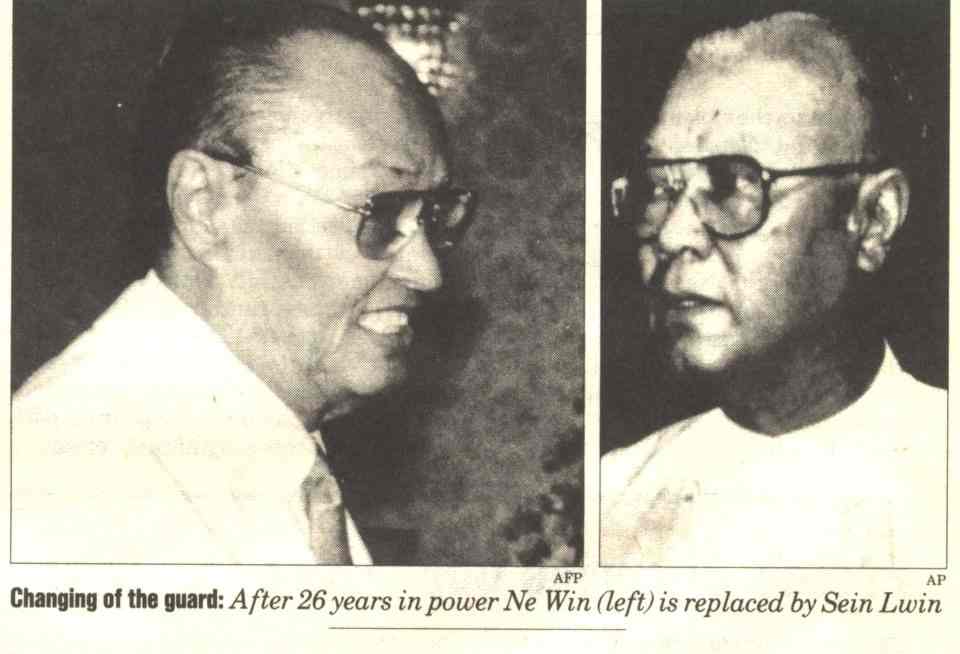Burma's New Strongman
Newsweek/ August 8, 1988
Former general Sein Lwin takes over in Rangoon
Ne Win may have stepped off the Burmese road to socialism, but his country's future looks as rocky as ever. Two weeks ago, after 26 years as Burma's absolute ruler, Ne Win announced he would resign and proposed a referendum to determine a new form of government. By last week, however, the chances for change in Rangoon looked exceedingly slim. No sooner did Ne Win quit than an emergency congress of the Burma Socialist Program Party named one of his top aides, Sein Lwin, as party chairman -- and rejected the referendum proposal. The following day the National Assembly added to Sein Lwin's power by electing him president.

Riot Squad: A retired general and one of Ne Win's top internal-security operatives, Sein Lwin, 64, is perhaps the most hated man in Burma, renowned for his heavy-handed suppression of dissent. In 1962 he commanded an Army company that killed 22 students while putting down antigovernment protests at Rangoon University. In 1974 his police units crushed another student disturbance. This past March and June Sein Lwin led the feared Lon Htein riot squad against more campus protesters in Rangoon. During the confrontation an estimated 200 people died, including 41 who suffocated while packed inside a police van. In a new crackdown, late last weekend he ordered the arrest of 10 prominent Burmese including a former general and a reporter for the Associated Press.
Well aware of his poor standing with the populace, last week Sein Lwin moved to consolidate his position. He sacked the prime minister and the attorney general, blaming them for the student riots. Even so, it remains unclear whether he can govern Burma effectively. Foreign diplomats say it is too early to tell whether Ne Win will drop from sight or will continue to play an influential behind-the-scenes role. Whatever the case, Sein Win's survival depends on his ability to win the support of the armed forces, which form the backbone of the party and government. "Everyone owes undivided loyalty to Ne Win and he may continue to keep those loyalties," says a Western diplomat in Rangoon.
Sein Lwin appears to be gambling that he can pull off a tricky maneuver: liberalizing the economy while keeping a lid on Burma's urban unrest. Some Western diplomats fear that Sein Lwin's rise to power will fuel antigovernment passions among students and workers, leading to further clashes. Reform-minded military men worry that popular discontent aimed at Sein Lwin and his riot police will pt the Army where it least wants to be: in the streets confronting Burmese citizens. As things stand now, the opportunity for change in Burma presented by Ne Win's resignation seems to have been squandered. The brief moment of hope has been overtaken by fears of renewed confrontation.
Ron Moreeau in Bangkok.
NEWSWEEK/AUGUST 8, 1988.



